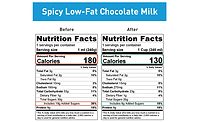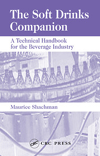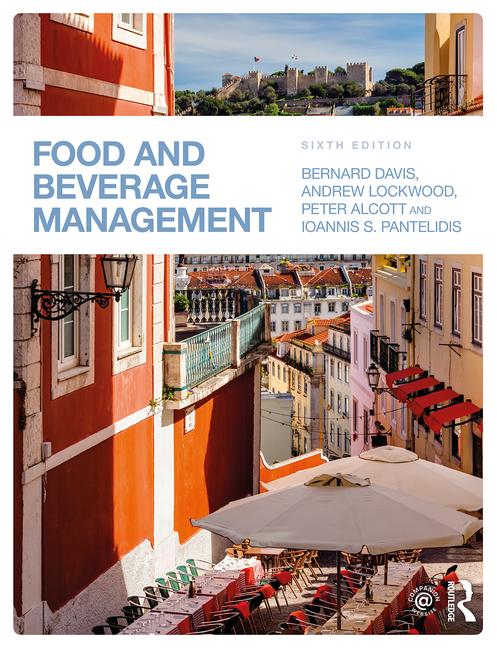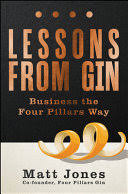What beverage distributors, retailers need to know about insuring themselves
Proper insurance coverage allows business owners to focus on development

Valued at more than $240 billion, there’s no doubt the North American beverage marketplace is a major economic player. However, even with this large number, businesses are not exempt from risks and liabilities. In fact, with so much at stake, they could stand to have bigger losses.
Whether it’s a natural disaster caused by fire, flood or earthquake; an employee who gets injured from accidental slips and falls; property damage; a truck that gets in an accident; or a faulty product leading to lawsuits, there are a number of unfortunate scenarios for beverage distributors, drink retailers, bars, pubs and restaurants that could negatively harm their businesses.
Basic coverage breakdown
Businesses should invest in reliable policies to cover financial risks and responsibilities related to operations. All businesses should consider the following three core policies:
- General liability (including completed operations): As the foundation of every business insurance policy, general liability provides coverage against bodily injury, property damage, and personal or advertising claims and lends assistance for medical fees and other expenses. Coupled with completed operations, it extends coverage from liabilities arising beyond the business premises.
- Commercial property: It protects the physical assets of the owned business including the structure and all related contents such as bar furniture, drinking equipment, computer sets and other objects. After a property damage or certain loss, all expenses with regards to business property can be recovered.
- Workers compensation: Required by most states, it keeps employees safe by protecting them from work-related injuries or accidents and provides coverage for medical expenses, rehabilitation treatments and lost wages. Alternatively, business owners are protected from financially damaging lawsuits due to negligence.
Bars and restaurants
Being in the beverage industry, and specifically, the liquor industry is not easy. Most businesses are focused on operations, handling orders and managing people. However, being busy with other things and forgetting the potential business risks means exposure to liabilities and financial mishaps. The following are some of the most common exposures for places that sell alcohol, including bars and restaurants:
Drunk driving: Driving under the influence of alcohol is a major risk to all bar owners and liquor stores. Fatalities continuously are rising each year and establishments involved in lawsuits is not uncommon.
Activity hazards: Burned faces from flaming alcohol tricks, head injuries due to mechanical bull events and broken legs from falls off a bar stool; all of them warrant legal duties including health treatments.
No exit zone: Regardless if it’s a blocked exit, locked doors or a malfunctioning sign, a single accident with customers unable to exit could lead to expensive property damage or worse, casualties.
Flammable decorations: Blinking and flashing lights will surely attract tons of consumers, but claims resulting from burn injuries often are costly and bar embellishments can be a major fire hazard.
Fake out: Underage consumers consuming alcohol. If something happens, even if they leave the premises, bar owners still are held liable for not properly scanning and assessing their documents.
It is a common misconception that general liability protects businesses from damages including alcohol-related incidents. However, the vast majority of general liability policies clearly state that exclusion is applied if the incident involves alcohol.
A more proper coverage would be liquor liability and it is required for anyone that manufactures, sells or serves alcohol, operates in a state that requires it, or hosts or caters events where alcohol beverages are served. Even if a business isn’t required to have liquor liability, it is still a good idea to get it if a business rents out or leases their property for parties or production.
Beverage distributors
Being a beverage distributor is different than a business that directly sells alcohol to consumers and thus their needs and liabilities vary. In terms of insurance, those in the distribution industry should consider having:
Equipment breakdown: Beverage and liquor equipment is expensive, and malfunctions can result in loss of income. Equipment breakdown insurance aims to protect tools and equipment in the care, custody and control of the owner.
Inland marine: Transporting goods, especially alcohol beverages, is a risky process. This policy provides coverage for products in transit through the land, air, and other forms of transportation excluding water.
Food contamination: Beyond contamination, a single change in humidity and temperature can affect the quality and safeness of the product. This policy protects the business from the associated risks of spoilage.
Commercial auto: Provides coverage for bodily injury and physical damage caused by vehicular-related accidents, commercial auto covers the cost of repairing or replacing business vehicles within the stated limit.
The beverage industry is expected to grow and the possibilities of success are high. With the right insurance coverage, businesses are protected against unforeseen circumstances allowing owners to focus on things that matter most — their products, growth and development. BI
Looking for a reprint of this article?
From high-res PDFs to custom plaques, order your copy today!








